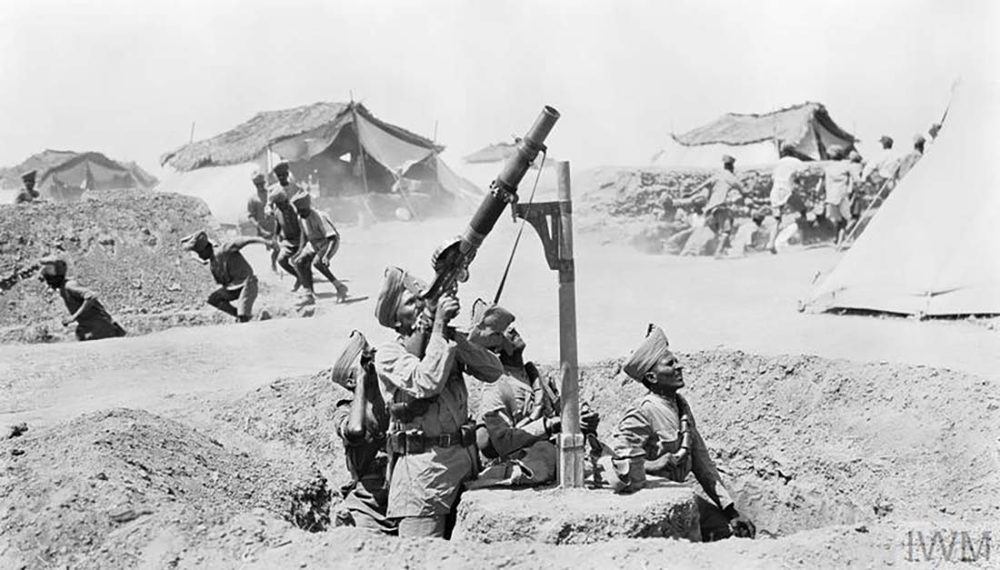08 December 2023
New PhD post with University of Greenwich to identify Indian war dead
The CWGC Non-Commemoration Programme opens a PhD post with the University of Greenwich, to help find names of Indian war dead previously not commemorated.

Jat Lewis gunner firing at enemy plane while the other Sepoys rush to funk pits for safety, © IWM Q 24781
The University of Greenwich will host a CWGC funded PhD research project. The new post will provide unparalleled insights into all those who served on behalf of the British empire.
One and a half million Indians fought with the British in the First World War – from the mud of Flanders to the African bush and the deserts of the Middle East- and made a vital contribution to Allied victory in 1918. In 1915, the bulk of Indian forces were transferred from the Western Front for service in Gallipoli, the Middle East and Africa, where they served with distinction. It is now known that many Indian casualties of these campaigns were treated unequally and not individually commemorated.
Funding for this important PhD, the first of its kind to be provided by CWGC, will run under joint supervision of CWGC’s Official Historian Dr George Hay, with University of Greenwich’s Professor Gavin Rand. Initial research will focus on a collection of important historical documents known as the Punjab Registers, which are archived at the Lahore Museum. These documents, which have recently been digitised and transcribed by the University of Greenwich and the UK Punjab Heritage Association, a record of more than 300,000 men who served with the Indian Army during the First World War.
Professor Gavin Rand, University of Greenwich explains: “The Punjab Registers provide remarkable insights into the Indian Army’s rank and file, helping us to make sense of those who served as soldiers and labourers – and to identify those whose deaths were not properly commemorated at the time. This scholarship will not only enable us to better understand who enlisted and why they did so, it will also make an important contribution to addressing the historical shortcomings acknowledged by the Commission. We are delighted to be part of this important and timely work.”
The joint post is part of CWGC’s commitment to ensure all Commonwealth dead of the two world wars are commemorated equally – the most important piece of commemorations work in 80 years.

